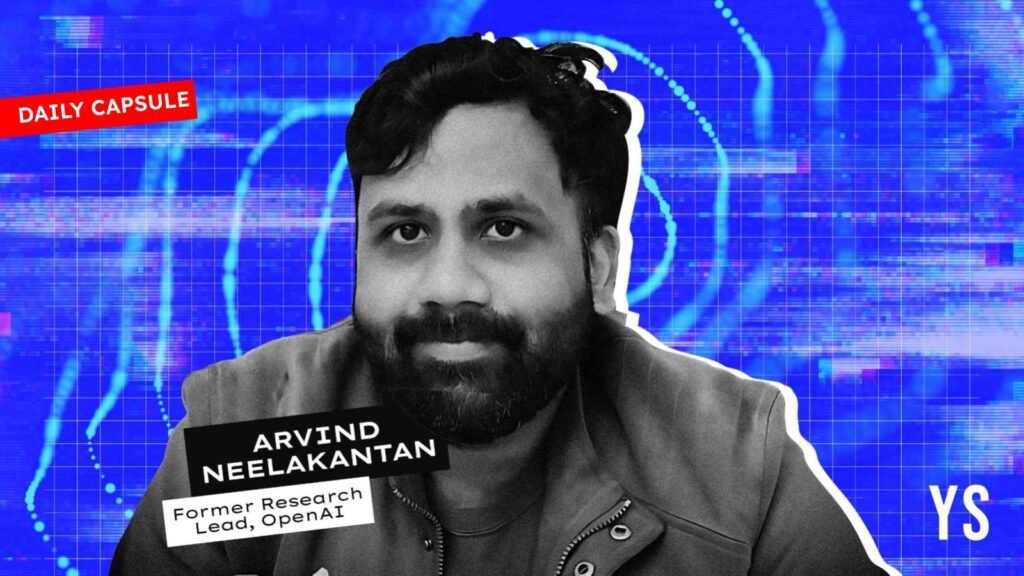
Hello,
Big Tech is dealing with its demons.
Microsoft is laying off as many as 4%, or roughly 9,100, of its employees in the largest round of job cuts since 2023. The company is looking to reduce the number of layers of managers, according to CNBC.
Google is in a fix, too.
The tech giant has been ordered to pay $314 million to Android smartphone users in California, US, after a state court found Google liable for sending and receiving information from Android devices without users’ permission while the devices were idle.
The company has also been spinning a yarn over its sustainability claims.
Non-profit Kairos Fellowship found that Google’s carbon emissions went up by 65% between 2019 and 2024, higher than its self-reported figure of 51%. Between 2010 and 2024, Google’s total greenhouse gas emissions increased by 1,515%, with the largest year-over-year jump between 2023 and 2024.
Meanwhile, India is trending positively on the matter. Renewables now make up more than 17% of the country’s electricity. Coal-fired generation fell nearly 3% in the first half of 2025 due to early monsoons and slowing economic activity, according to a Reuters analysis.
The 2070 net-zero goal looks achievable!
In today’s newsletter, we will talk about
- Inside ChatGPT’s workhorse engine
- Korean food with a desi twist
- How DIKSHa is skilling rural India
Here’s your trivia for today: What is the oldest hereditary monarchy in the world?
Interview
Inside ChatGPT’s workhorse engine
In 2022, ChatGPT altered the software world forever, powered by the creation of GPT-3. At the heart of this foundational leap was Arvind Neelakantan, a Chennai-born engineer.
Speaking at the “Inside the Mind of AI,” a mentor session held at Scaler School of Technology in Bengaluru, Neelakantan delved into the journey from GPT-3 to ChatGPT—a path which turned academic curiosity into the technology that is now being embedded in nearly every aspect of our lives and work.
Laying the foundation:
- From a research perspective, finetuning large-scale models like GPT-3 takes a lot of experimentation, says Neelakantan. GPT-3 and GPT-4 in particular, were “very mission-driven efforts that required deep focus on the technical details to get things right”, he adds.
- Integrating modalities and tools is at a nascent stage in India, with more work needed on the foundational front, he adds. Among other things, researchers and startups should aim to make the scaling laws steeper through algorithmic breakthroughs.
- Neelakantan’s love for programming began in 10th grade. In undergrad, he developed an interest in research and AI while helping PhD students at IIT Madras and NIT. For him, “the idea that people are trying to replicate human intelligence in a computer was just fascinating”.

Funding Alert
Startup: Bambrew
Amount: Rs 90 Cr
Round: Undisclosed
Startup: CIMware
Amount: $2.3M
Round: Pre-Series A
Startup: Iora Ecological Solutions
Amount: Rs 8.5 Cr
Round: Debt
Startup
Korean food with a desi twist
The Korean street food wave has swept the nation, and Bengaluru-based quick service restaurant brand Boba Bhai aims to cash in on this fervour.
Boba Bhai, which sells Korea-inspired fast food and bubble tea, was founded in 2023 by Dhruv Kohli. Its menu features bold, spicy, and cheesy flavours that echo Korean food trends, tailored to Indian tastes, paired with bubble tea, which is popular in modern Korean cafés and street food spots.
Surfing the K-wave:
- Boba Bhai’s menu is inspired by Seoul’s bold and indulgent street food culture. Instead of sticking to traditional Korean dishes, the brand is reinterpreting popular Korean street foods to suit Indian tastes, under the guidance of Chef Vikram Chawla.
- The brand’s menu features over 40 SKUs across bubble teas, cold coffees, milkshakes, Korean-style burgers (veg and non-veg), and finger foods like fries, wings, and spring rolls.
- In FY25, Boba Bhai posted a net revenue of Rs 30 crore—a big jump from Rs 5 crore in FY24. Dine-in outlets contributed about 20% of this. The company now plans to convert all its 30 cloud kitchens into physical QSRs; the goal is to reach 100 outlets by the end of this fiscal year.

Social Impact
How DIKSHa is skilling rural India
In 2016, the Dalmia Bharat Foundation launched its flagship CSR initiative, Dalmia Institute of Knowledge and Skill Harnessing (DIKSHa), driven by a simple but urgent vision: bridging the growing skill gap among India’s youth.
DIKSHa was launched as a community-centric initiative, offering free, certified training in a range of industry-relevant sectors. Today, it runs 23 centres across 11 states, with an annual training capacity of 7,300.

News & updates
- Demand nosedive: Tesla posted another big drop in quarterly deliveries on Wednesday, putting it on course for its second straight annual sales decline as demand falters due to backlash over CEO Elon Musk’s political stance and an ageing vehicle lineup.
- Pulling back: Foxconn Technology Group has asked hundreds of Chinese engineers and technicians to return home from its iPhone factories in India, dealing a blow to Apple’s manufacturing push in the South Asian country.
- Renewed optimism: Nvidia reclaimed the top spot among the most valued companies worldwide in June, as its shares were supported by renewed optimism over its leadership in artificial intelligence and expectations of surging demand for its AI chips.
What is the oldest hereditary monarchy in the world?
Answer: The Yamato Dynasty, or the Imperial House of Japan. While official records of royal succession date back to the 4th century, according to legend, the dynasty was founded by Emperor Jimmu in 660 BCE.
We would love to hear from you! To let us know what you liked and disliked about our newsletter, please mail nslfeedback@yourstory.com.
If you don’t already get this newsletter in your inbox, sign up here. For past editions of the YourStory Buzz, you can check our Daily Capsule page here.

